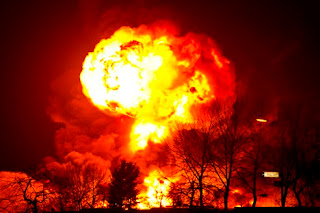Mijn zus had een nieuwe identiteitskaart nodig. Het was niet de eerste keer dat ze er één aanvroeg, want ze heeft net als ik inmiddels een zekere leeftijd bereikt en dan heb je dat soort dingen al vaker gedaan. Nu is het tegenwoordig mogelijk om via het internet een afspraak te maken zodat je meteen aan de beurt bent wanneer je op het gemeentehuis arriveert en aangezien mijn zus net als ik fulltime werkt, had ze dat natuurlijk netjes gedaan. Ook had ze de correcte pasfoto’s laten maken en had ze keurig haar oude ID-pas bij zich. Kortom, er kon niets misgaan, dacht ze. Tot ze zich precies op tijd bij de balie meldde.
Mijn zus noemde haar naam en deelde mede dat ze een afspraak had. Dat was prima in orde. Alles was zowaar goed doorgekomen. De pasfoto’s waren ook goed. Dat wil tegenwoordig nog wel eens misgaan, want je mag niet meer lachen en je oren moeten te zien zijn. Mijn zus had ook haar oude ID bij zich, maar daar begonnen de problemen, want dat bleek niet genoeg te zijn.
“Ik heb ook uw oude paspoort nodig,” zei de baliemedewerkster.
“Mijn oude paspoort heb ik in 1995 ingeleverd,” zei mijn zus, die op dat moment nog behoorlijk optimistisch was. “Sinds die tijd heb ik altijd een ID gehad, want ik heb geen paspoort nodig.”
“Er staat in de computer dat u nog steeds een paspoort heeft,” zei de medewerkster, die niet zo erg mee wilde werken. “U moet dat echt eerst inleveren voor ik u een nieuwe ID kan verstrekken.”
“Maar dat klopt niet,” probeerde mijn zus nog eens uit te leggen. “Ik heb in 1995 mijn paspoort ingeleverd, want dat moest ik toen doen om een ID te krijgen. Sinds die tijd heb ik iedere vijf jaar een nieuwe ID gehaald. Dat zou toch niet kunnen als ik het niet netjes had ingeleverd? Na 1995 heeft nooit iemand meer naar mijn oude paspoort gevraagd.”
“Het staat toch echt in de computer,” zei de mevrouw, die niet van plan was zich zomaar om te laten praten, “en de computer maakt geen fouten.”
“Nee,” beaamde mijn zus, “dat geloof ik best, maar mensen die gegevens invoeren doen dat wel en dat moet in dit geval gebeurd zijn. Hoe had ik die andere keren dan steeds zonder problemen een nieuwe ID kunnen krijgen?”
De mevrouw haalde haar schouders op.
“U moet eerst naar de politie om aan de geven dat uw paspoort vermist is,” zei ze, “en dan kunt u daarna met ons een nieuwe afspraak maken. Met het aangifteformulier kunt u dan een ID aanvragen.”
“Maar mijn paspoort is helemaal niet vermist!” Mijn zus begon nu redelijk wanhopig te worden. “Ik heb het bij jullie ingeleverd en als het vermist is, is dat dus bij jullie gebeurd, dus dan doen jullie maar aangifte.”
De mevrouw schudde zeer beslist haar hoofd.
“Zo werkt het niet. Er staat hier dat u een paspoort heeft en u kunt pas een ID krijgen wanneer u dat bij ons inlevert. Als u het niet meer heeft, is het vermist en dan moet u daarvan aangifte doen.”
Mijn zus stond met haar rug tegen de muur en het vuur spoot zowat letterlijk uit haar oren.
“Ik heb hier helemaal geen tijd voor,” probeerde ze nog, maar ook dat maakte geen enkele indruk.
“U kunt gewoon een nieuwe afspraak maken,” zei de mevrouw. Mijn zus zuchtte. Er zat niets anders op.
“Nou, laten we dat dan nu meteen maar even doen.”
“Oh, maar dat kan niet hoor,” sprak de mevrouw, “een afspraak maken kan alleen via het internet.”
“U kunt het toch gewoon even voor me op het internet zetten?” vroeg mijn zus nog, maar ze zag eigenlijk al meteen dat dat een volkomen overbodige vraag was. Er zat niets anders op dan maar naar het politiebureau te gaan.
“Waarmee kan ik u van dienst zijn?” vroeg de politieagent die bij de balie zat.
“Ik kom aangifte doen van de vermissing van mijn paspoort,” zei mijn zus.
De agent pakte een formulier dat speciaal voor dit doel bestemd was.
“Waar en wanneer bent u het document kwijtgeraakt?” vroeg hij.
“In 1995 op het gemeentehuis,” zei mijn zus.
De agent keek op van zijn formulier en begon toen hard te lachen.
“Is het weer zover?” vroeg hij. Mijn zus keek hem verbaasd aan.
“Nou ja,” legde hij uit, “we krijgen hier regelmatig mensen die aangifte komen doen van niet-vermiste paspoorten. Ze schijnen daar op het gemeentehuis nog wel eens een foutje te maken.”
“Wat moet ik nou doen?” vroeg mijn zus, die inmiddels ten einde raad was.
“Oh, ik schrijf gewoon even een aangifteformuliertje uit,” sprak de agent. “Kunt u meteen terug naar het gemeentehuis.”
“Als jullie nou weten dat het wel vaker fout gaat daar, kunnen jullie daar dan niets aan doen?” vroeg mijn zus.
De agent schudde zijn hoofd.
“Andere afdeling, hè, daar gaan we niet over.”
Hij overhandigde haar het papier.
“Ziezo,” zei hij. “U zou nu geen enkel probleem meer moeten hebben met het verkrijgen van een nieuwe ID.”
Toen mijn zus weer buiten stond bedacht ze zich dat de agent haar niet had gevraagd zich te identificeren. Volgende week heeft ze een nieuwe afspraak op het gemeentehuis.

